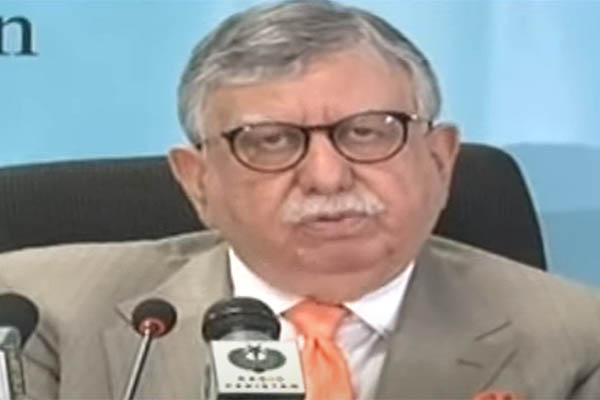
File photo of Finance Minister Shaukat Tarin
Pakistan’s finance minister blames global lender’s requirements for controversial legislations
The Pakistan Tehreek-e-Insaf (PTI)-led government was pressured to introduce controversial legislations by the International Monetary Fund (IMF), Finance Minister Shaukat Tarin claimed on Sunday.
In an interview with private broadcaster Geo News, he claimed that the geopolitical situation arising out of the Taliban takeover of Afghanistan was a key reason for the IMF’s stringent conditions to resume a stalled $6 billion Extended Fund Facility. Another factor, he claimed, was the previous finance minister reneging on several commitments made to the lender in March 2021.
Addressing the Finance (Supplementary) Bill, often described as a mini-budget, and the State Bank of Pakistan (Amendment) Bill, 2021, he said both legislations were a “prior action” required by the IMF to resume the bailout program. Following their approval by the federal cabinet, he said, the bills had been presented in Parliament and would have be approved “without issues.” To a question, he said the PTI’s coalition partners had been given a detailed briefing on the bills, adding that their concerns had been addressed. “Our allies were informed that complete bill volume is not more than Rs. 343 billion,” he said.
On concerns that the mini-budget might not be approved by Parliament prior to Jan. 12—when the IMF Executive Board is set to deliberate on Pakistan’s loan—Tarin said the lender could be informed that the process had begun. “It may take 3 to 4 days beyond Jan. 12 [to be approved],” he said, adding that once the IMF signed off, $1 billion would be released to Pakistan.
“We are not imposing new taxes in the mini-budget, merely withdrawing tax exemptions of Rs. 343 billion,” he said, reiterating that the average citizen would only have to bear additional taxes amounting to Rs. 2 billion. “The majority of exemptions will target the elite class,” he said.
To a question, he said the tax exemptions were being withdrawn to ensure all aspects of Pakistan’s economy were documented. “IMF is of the view that there should be uniform sales tax on all the sectors and then subsidies or refund, whatever is needed, should be granted,” he said, noting that the petroleum levy in fuel prices had been increased per the IMF’s demands. “We had cut down the sales tax on petroleum products to zero but were compelled to apply the petroleum levy due to IMF’s strict behavior,” he said.
Tarin stressed that targeted subsidies were options to overcome contentious taxes on 850cc vehicles, solar panels and point-of-sales machines, as critics have questioned why the government is dis-incentivizing its own stated policies.
On the State Bank bill, which envisions autonomy for the central bank and has drawn criticism from the opposition, the finance minister said the government had address the apprehensions of coalition partners on it and hoped it would be passed without hindrance. Explaining the legislation, he said the apex bank would become more independent but would still remain linked with the Government of Pakistan and the Finance Ministry. He said abolishing the policy board would not make much difference.
Referring to the 12.1 percent year-on-year increase to the Consumer Price Index in December 2021, he reiterated that this was a result of high global commodity prices and would come down as rates stabilized. To overcome this, he said, Pakistan must curb rupee depreciation; control supply chain of commodities; and introduce cold storages of essential commodities to offset global fluctuations.
“We negotiated with the IMF and the rupee showed recovery and it will show more improvement when we will get the [$1 billion] tranche,” he said. He also reiterated that he believed the rupee was “unnaturally” undervalued and claimed the SBP was working to overcome this.
